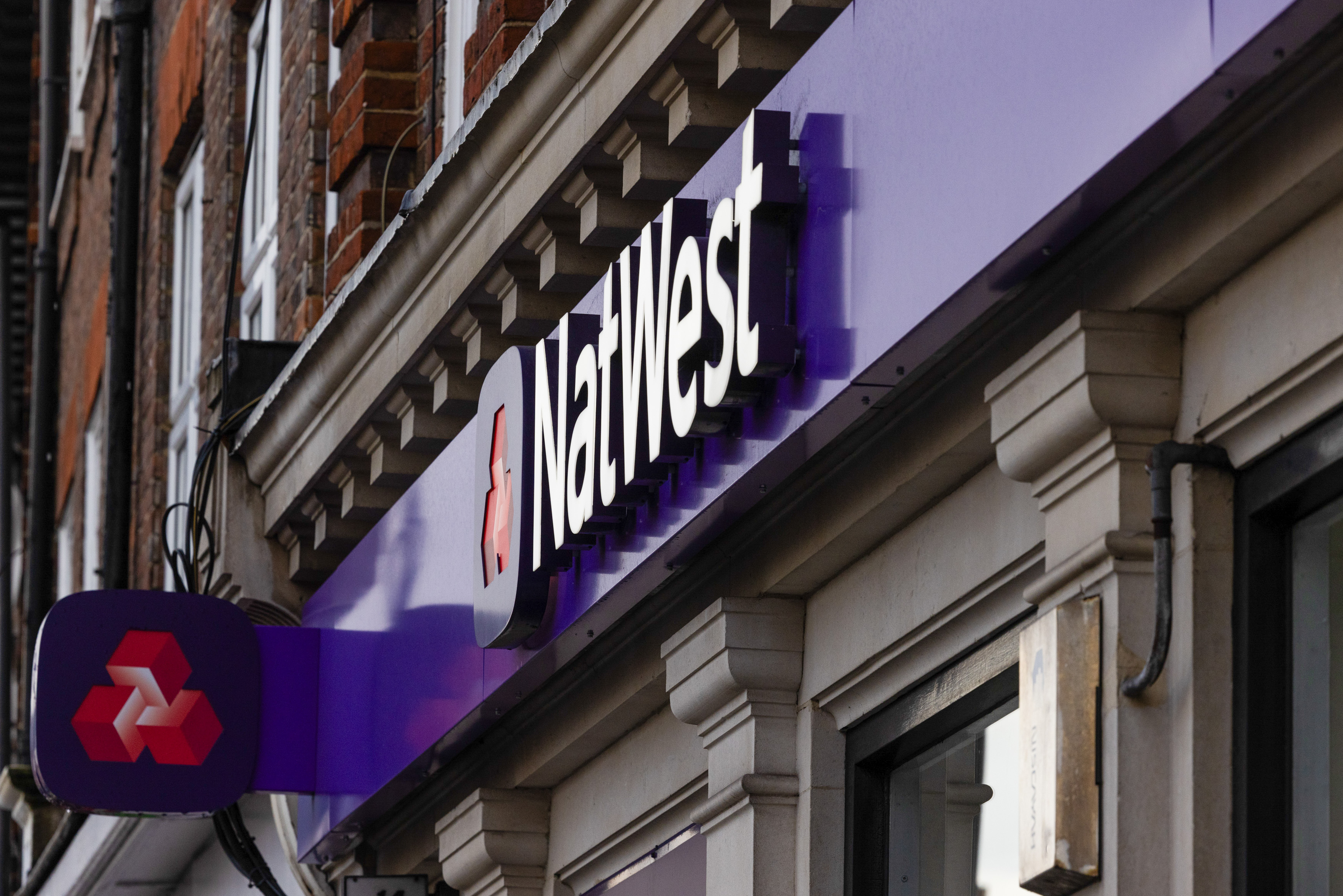The best fintech apps on the market
From digital banking to investment platforms, here are the top fintech apps on the market right now, according to David C. Stevenson


Get the latest financial news, insights and expert analysis from our award-winning MoneyWeek team, to help you understand what really matters when it comes to your finances.
You are now subscribed
Your newsletter sign-up was successful
Want to add more newsletters?

Twice daily
MoneyWeek
Get the latest financial news, insights and expert analysis from our award-winning MoneyWeek team, to help you understand what really matters when it comes to your finances.

Four times a week
Look After My Bills
Sign up to our free money-saving newsletter, filled with the latest news and expert advice to help you find the best tips and deals for managing your bills. Start saving today!
I have a confession to make: I have gone native when it comes to financial technology (fintech). I experimented with a wide array of banking and investing apps for years, but I kept my “legacy”, old-world accounts at the same time. I used to think that fintech apps sounded tremendous – but can suddenly go bust, leaving customers stranded.
Over the last six months, though, I’ve realised that most of the services I use are here to stay, either because the providers are profitable now or because much more significant players are behind the brands. So I have now dumped my legacy accounts and only work with digital platforms.
Best fintech apps for digital banking
I think the following are the leaders in the competitive world of fintech. Let’s start with digital banking apps: first for individuals, and then for small businesses. In digital banking, two main rivals are duking it out: Starling and Monzo – and for me, the winner must be Starling.
MoneyWeek
Subscribe to MoneyWeek today and get your first six magazine issues absolutely FREE

Sign up to Money Morning
Don't miss the latest investment and personal finances news, market analysis, plus money-saving tips with our free twice-daily newsletter
Don't miss the latest investment and personal finances news, market analysis, plus money-saving tips with our free twice-daily newsletter
I’ve been with this digital bank for more than five years and rate it highly. It’s a breeze to use, with some excellent features, including “Spaces” – in effect, internal pots where you can stash money. This feature allows you to pay all your monthly bills from one space and then keep your main account for spending on a daily basis.
Another impressive feature – if you travel to Europe a lot or own property in the EU – is the Euro-denominated current account with very competitive (0.4%) foreign exchange (forex) spreads. One final observation: many customers are wary of the customer service side of digital-only products. There are no branches and most communication is via phone or messaging. Unless you pay for a private bank with proper personal service, in my view, the legacy banks’ customer service is getting worse. By contrast, Starling’s record of in-app messaging is excellent.
Challenger banks offer tough competition
Starling faces tough competition from Monzo and a new challenger with deep pockets: the Chase banking app, from one of the world’s biggest banks, JPMorgan Chase. I also use Chase, and I think it’s a real challenger to Starling for two reasons. First, if you use it for day-to-day card spending, you get 1% cashback on all transactions for the first year – and beyond that first year if you keep putting in £700 a month.
The second big positive is its savings rates. The main Chase saver pays an impressive 5.1% per annum while its roundup account pays 5%. A straightforward strategy is to use the Chase app as the day-to-day card account and as a separate cash savings reserve.
One flaw in this approach is that you only get a 1% interest rate on the current account, which compares poorly with the Starling standard rate (though you do get 1% cashback). If you want an alternative to the big outfits, consider a smaller digital bank. Kroo, for example, is easy to use and pays 4.35% on its current account balances.
Best business bank accounts
Sticking with banking apps, here are the best digital banking services for small businesses. Again, in my view, Starling comes out top, with its range of tools for invoicing and VAT payments, in addition to the always useful mobile cheque deposit service (via a photo on the app) and the option to deposit cash at the Post Office.
The downside of the business side of Starling is that its accounts don’t pay interest, but then, most business bank accounts don’t. Enter Starling’s big rival in business banking, Tide. This digital business bank account is more expensive (if you want lots of features) at £9.99 a month, although you can use the free service, in which case you pay 20p for each transaction.
But Tide is both easy to use and boasts a business saver account paying 4.33%. That rate is eclipsed only by a business banking brand called Allica Bank, which offers term-based business savings accounts that pay from 5.15% for 12 months to 5% for six months. Tide and Allica both boast a superb account opening process – excellent news for business owners used to protracted identification and anti-money laundering background checks.
Top investment platforms
I will now assess online investment accounts for self-invested personal pensions (Sipps), individual savings accounts (ISAs) and general dealing. Over the years, I’ve used all three leading online brokers: Hargreaves Lansdown (HL), AJ Bell and Interactive Investor, and I keep returning to HL. It’s not the cheapest, but its service levels are consistently high. Offerings start at £11.95 for dealing (up to nine stocks a month), alongside charges that start at 0.45% of assets and go lower if you invest more.
One area where HL has upped its game recently is interest rates paid on cash in dealing and tax-wrapper accounts. Traditionally, online brokers all paid dire rates, but HL now pays above the market average, varying from 3% to 3.7%.
I also rate AJ Bell highly, again for its service and also the cheaper costs: platform charges are 0.25% for a shares account and £5 on share dealing. Interest rates on an ISA vary between 2.5% and 3.5%, and in a dealing account, between 1.95% and 2.45%.
There is a longer list of newer players fighting the big three investment platforms, and I have tried them all. I still deem Freetrade the best of the digital-only platforms, but if you want the best features (ISAs, Sipps or more dealing choices, and better interest rates), it’s not free. The standard service costs £5.99 a month, and the Plus service £11.99. Still, interest rates on cash in the Plus and Standard services are a respective 5% and 3%. If you opt for the free basic service, you will be paid 1%.
Trading 212 has long been another competitor in this area, but it has recently upped its game by launching a free share dealing ISA, with a cash ISA imminent. Its forex fee is a very reasonable 0.15%, a major saving if you deal frequently in US shares.
The Lightyear share dealing app, meanwhile, has impressed me hugely, although it doesn’t offer an ISA or a Sipp. I think Lightyear is the easiest app to use, and its pricing is very competitive. It’s not free (on US shares, the dealing charge is 0.1% up to a maximum of $1 and £1 for UK shares) and the currency conversion is a tad pricier than Trading 212 at 0.35%, but it pays a whopping 4.5% on cash in its UK accounts.
This article was first published in MoneyWeek's magazine. Enjoy exclusive early access to news, opinion and analysis from our team of financial experts with a MoneyWeek subscription.
Get the latest financial news, insights and expert analysis from our award-winning MoneyWeek team, to help you understand what really matters when it comes to your finances.

David Stevenson has been writing the Financial Times Adventurous Investor column for nearly 15 years and is also a regular columnist for Citywire.
He writes his own widely read Adventurous Investor SubStack newsletter at davidstevenson.substack.com
David has also had a successful career as a media entrepreneur setting up the big European fintech news and event outfit www.altfi.com as well as www.etfstream.com in the asset management space.
Before that, he was a founding partner in the Rocket Science Group, a successful corporate comms business.
David has also written a number of books on investing, funds, ETFs, and stock picking and is currently a non-executive director on a number of stockmarket-listed funds including Gresham House Energy Storage and the Aurora Investment Trust.
In what remains of his spare time he is a presiding justice on the Southampton magistrates bench.
-
 NatWest to close 32 more bank branches – see the full list
NatWest to close 32 more bank branches – see the full listNatWest is closing 32 branches in 2026 and 2027. Will your local area be affected?
-
 Three key winners from the AI boom and beyond
Three key winners from the AI boom and beyondJames Harries of the Trojan Global Income Fund picks three promising stocks that transcend the hype of the AI boom
-
 Why it might be time to switch your pension strategy
Why it might be time to switch your pension strategyYour pension strategy may need tweaking – with many pension experts now arguing that 75 should be the pivotal age in your retirement planning.
-
 Rachel Reeves is rediscovering the Laffer curve
Rachel Reeves is rediscovering the Laffer curveOpinion If you keep raising taxes, at some point, you start to bring in less revenue. Rachel Reeves has shown the way, says Matthew Lynn
-
 ISA reforms will destroy the last relic of the Thatcher era
ISA reforms will destroy the last relic of the Thatcher eraOpinion With the ISA under attack, the Labour government has now started to destroy the last relic of the Thatcher era, returning the economy to the dysfunctional 1970s
-
 Investing in forestry: a tax-efficient way to grow your wealth
Investing in forestry: a tax-efficient way to grow your wealthRecord sums are pouring into forestry funds. It makes sense to join the rush, says David Prosser
-
 'Expect more policy U-turns from Keir Starmer'
'Expect more policy U-turns from Keir Starmer'Opinion Keir Starmer’s government quickly changes its mind as soon as it runs into any opposition. It isn't hard to work out where the next U-turns will come from
-
 Why pension transfers are so tricky
Why pension transfers are so trickyInvestors could lose out when they do a pension transfer, as the process is fraught with risk and requires advice, says David Prosser
-
 Modern Monetary Theory and the return of magical thinking
Modern Monetary Theory and the return of magical thinkingThe Modern Monetary Theory is back in fashion again. How worried should we be?
-
 The coming collapse in the jobs market
The coming collapse in the jobs marketOpinion Once the Employment Bill becomes law, expect a full-scale collapse in hiring, says Matthew Lynn